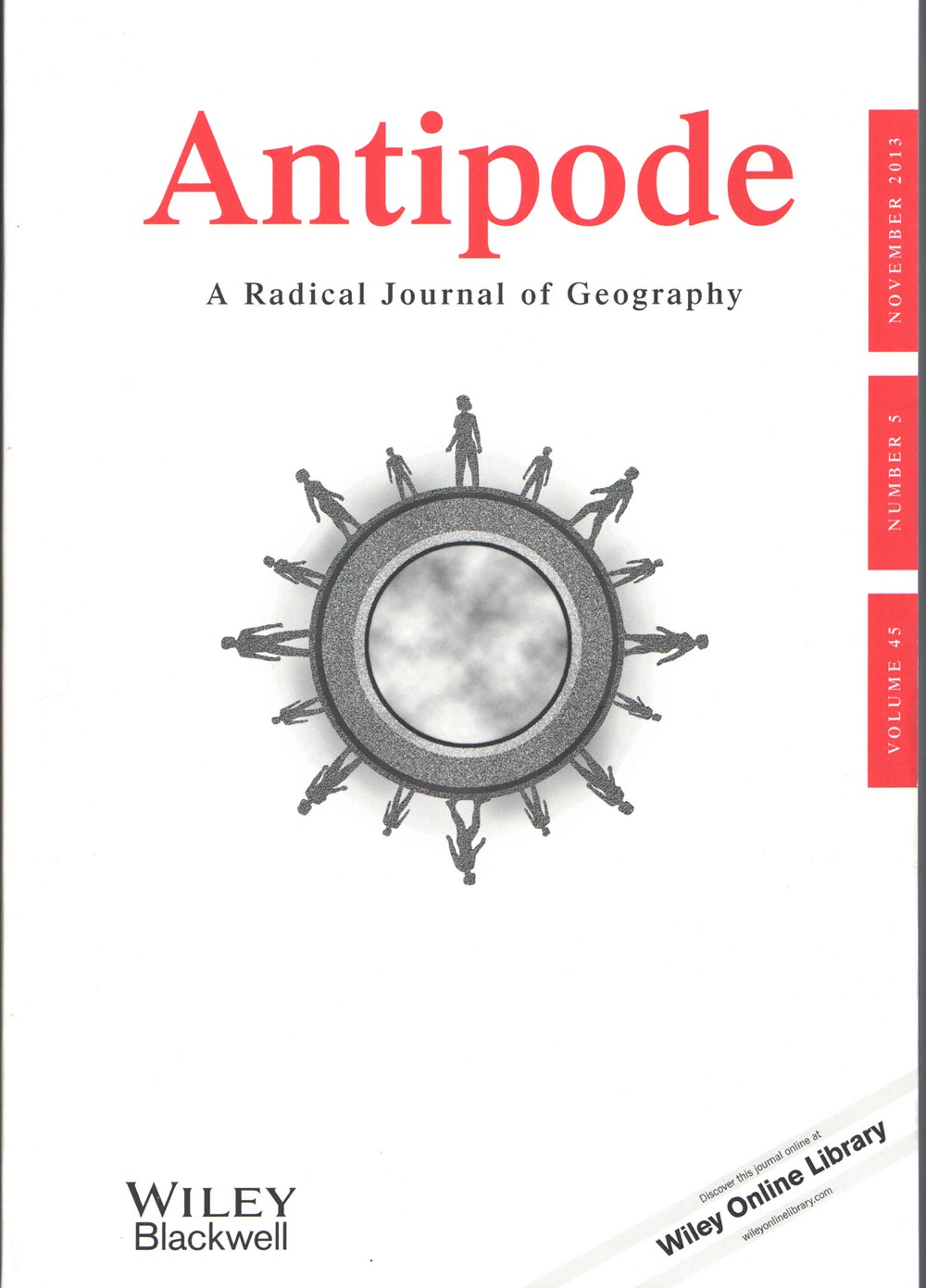The Making of a Business Case for Unpaid Care and Domestic Work in the Global South: New Frontiers of Corporate Social Responsibility?
IF 3.6
1区 社会学
Q1 GEOGRAPHY
引用次数: 0
Abstract
Abstract For some decades, feminist scholars have engaged with the new responsibilities that corporations assume to address gender inequalities, often critiquing forms of economic empowerment that ignore the significance of social reproduction. Recently, however, the idea of a business case for unpaid care and domestic work (UCDW) has caught traction, opening up new ways for businesses to showcase responsibilities for gender equality in the Global South. Taking cues from feminist debates on corporate agency for gender equality, this paper examines a three‐year partnership between Oxfam and Unilever's brand Surf, which aimed to recognise, reduce, and redistribute UCDW in the Philippines and Zimbabwe. Based on online material and interviews, we scrutinise how corporate and NGO goals coalesced around a business case for care and the governmental techniques assembled to act upon the problem of UCDW in the Global South. In comparison to the business case for women's economic empowerment we find that, for the corporation, the targeting of the social reproduction of groups of negligible economic interest is more difficult to justify and sustain. However, some of the techniques of governance used during the course of the partnership have been repurposed for political ends, charting different pathways to transform gender unequal responsibilities for social reproduction.在南半球为无偿护理和家务劳动提供商业案例:企业社会责任的新领域?
几十年来,女权主义学者一直在研究企业在解决性别不平等问题上承担的新责任,他们经常批评忽视社会再生产重要性的经济赋权形式。然而,最近,关于无偿照顾和家务劳动(UCDW)的商业案例的想法受到了关注,为企业展示南半球性别平等的责任开辟了新的途径。从女权主义者关于企业代理性别平等的辩论中得到启发,本文研究了乐施会与联合利华品牌Surf之间为期三年的合作关系,该合作旨在识别、减少和重新分配菲律宾和津巴布韦的UCDW。基于在线材料和访谈,我们仔细研究了企业和非政府组织的目标是如何围绕一个关怀的商业案例和政府的技术组合在一起,以解决全球南方的UCDW问题。与妇女经济赋权的商业案例相比,我们发现,对公司来说,以经济利益微不足道的群体的社会再生产为目标更难以证明和维持。然而,在伙伴关系过程中使用的一些管理技术已被重新用于政治目的,为改变社会再生产中的性别不平等责任指明了不同的途径。
本文章由计算机程序翻译,如有差异,请以英文原文为准。
求助全文
约1分钟内获得全文
求助全文
来源期刊

Antipode
GEOGRAPHY-
CiteScore
9.50
自引率
10.00%
发文量
111
期刊介绍:
Antipode has published dissenting scholarship that explores and utilizes key geographical ideas like space, scale, place, borders and landscape. It aims to challenge dominant and orthodox views of the world through debate, scholarship and politically-committed research, creating new spaces and envisioning new futures. Antipode welcomes the infusion of new ideas and the shaking up of old positions, without being committed to just one view of radical analysis or politics.
 求助内容:
求助内容: 应助结果提醒方式:
应助结果提醒方式:


